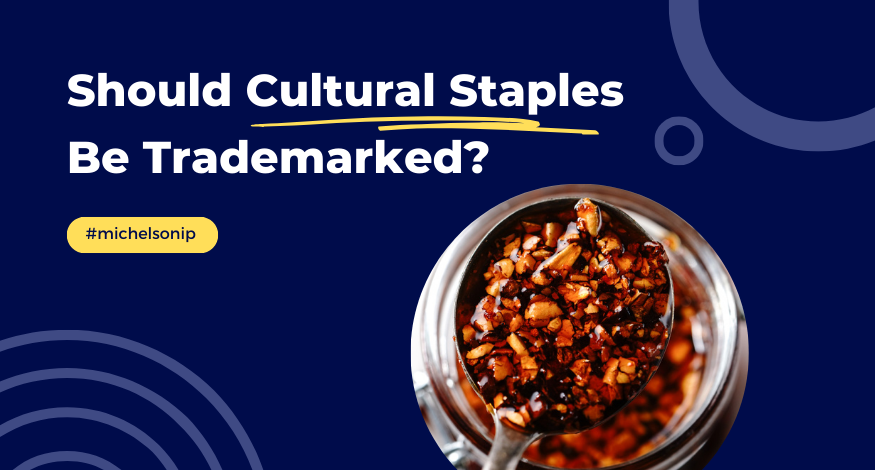Chef David Chang’s recent attempt to trademark Chili Crunch, a popular Asian condiment, has sparked a heated discussion in the food industry and beyond. As with many creators and innovators, chefs and food brands often look for ways to stand out, whether it’s through creative recipes or unique packaging. When a cultural staple, deeply rooted in a community’s culinary heritage, becomes the focus of a trademark dispute it raises significant questions about legal and ethical matters.
The Spice Behind the Debate
Chili Crunch, also known as chili crisp, is beloved for adding a satisfying crunch and burst of heat to everything from noodles to dumplings. It’s no wonder this versatile and delicious condiment has gained widespread appeal throughout China, Southeast Asia, and beyond.
Despite its longstanding cultural significance, Chef David Chang, founder of Momofuku, has trademarked the name “Chili Crunch” and filed a trademark application for “Chili Crunch.” On the surface, this may seem like a smart business move. After all, a trademark can help protect a brand’s identity and prevent others from cashing in on its success. In this case, however, the implications are far more complex.
A Question of Cultural Exploitation?
The situation raises important questions about turning traditional foods into commodities. Chili crisp is not just a product; it’s part of a cultural heritage that has been passed down through generations. By attempting to trademark the name, Chang risks being perceived as attempting to capitalize on a cultural staple, turning a shared culinary tradition into something exclusive.
The Impact on Small Businesses and the Community
Trademarking the name of a common food item gives the trademark holder the legal right to send cease and desist letters to others who use the name. For small businesses, especially those who have been making and selling chili crunch for years, this could be devastating. The financial burden of rebranding or defending themselves in court could be overwhelming for smaller companies, which may not have the resources to fight back.
When a single entity gains control over a common name, it can hurt the ability of others to compete in the market. The power dynamics at play in cases like this are hard to ignore. Well-funded companies like Momofuku can leverage their resources to potentially monopolize a market at the expense of smaller businesses. Additionally, by potentially impacting production as we know it, the trademark could render chili crisp out of reach for the communities that created it.
This isn’t just a legal issue – it’s an ethical one.
Given the widespread usage of chili crisp, let’s imagine if a corporate giant like McDonald’s trademarked the word “cheeseburger” or a southern baker trademarked “apple pie.” They could quickly put countless businesses out of operation. Fortunately, trademark laws have traditionally prevented the ownership of common words. Instead, companies like McDonald’s have trademarked unique product names like “Big Mac” and “Whopper,” which differentiate their offerings without infringing on the broader market.
Learning from Huy Fong Foods: A More Constructive Approach
There are ways to protect a brand’s identity without overreaching into the cultural domain. David Tran’s approach with Huy Fong Foods is a perfect example. Rather than trademarking the word “Sriracha,” which has deep cultural roots, he chose to trademark the distinctive rooster logo on his products. It’s a model that other businesses could follow to balance the need for brand protection with the importance of cultural preservation.
A Call for Thoughtful Trademarking
When it comes to cultural staples like chili crunch, there’s a fine line between protecting a brand and crossing into the territory of cultural exploitation. For innovators and entrepreneurs, the lesson here is clear: Think carefully before attempting to trademark something with deep cultural roots. While it’s important to protect a business, it’s equally important to respect the origins of the products. Instead of trademarking a generic name, consider creating a unique brand identity that distinguishes the product without overshadowing the cultural significance of the food itself.
The Michelson Institute for Intellectual Property, an initiative of the Michelson 20MM Foundation, provides access to empowering IP education for budding inventors and entrepreneurs. Michelson 20MM was founded thanks to the generous support of renowned spinal surgeon Dr. Gary K. Michelson and Alya Michelson. To learn more, visit 20mm.org.
